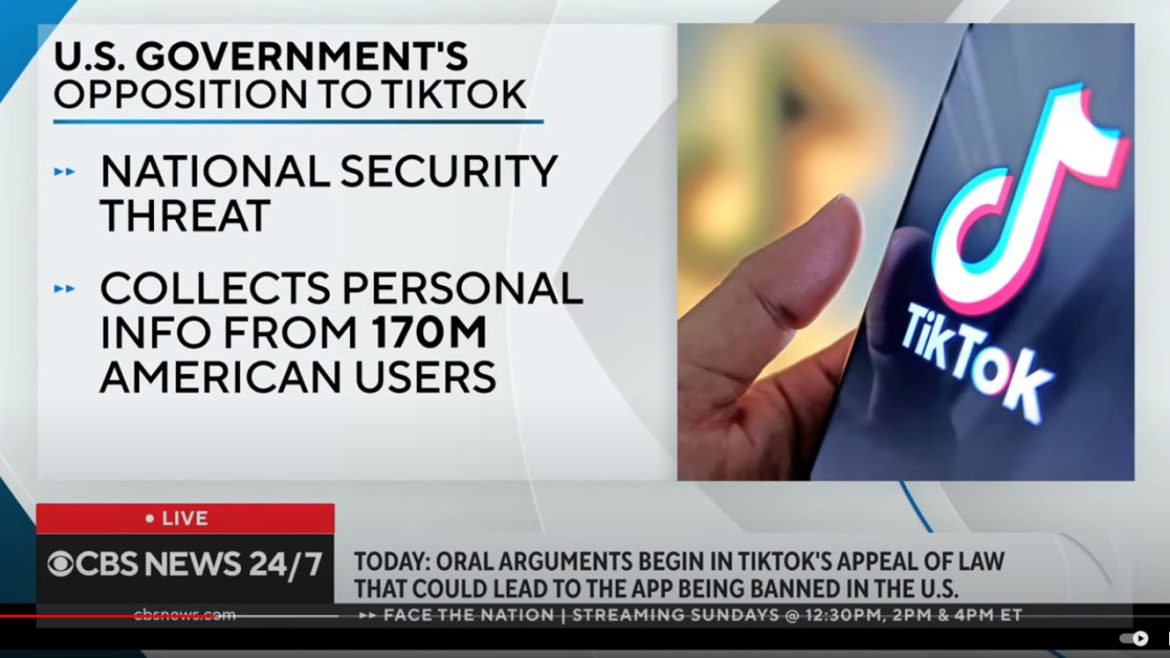Oral arguments are underway in a federal court as TikTok and its parent company, ByteDance, challenge a law that could lead to the popular social media app being banned in the United States. The legislation, passed earlier this year, requires ByteDance to sell TikTok by January 19th or face a nationwide ban. The law stems from growing concerns among U.S. lawmakers about TikTok’s handling of American user data and its potential ties to the Chinese government.
TikTok and ByteDance are fighting back, claiming the legislation is unconstitutional and violates free speech protections under the First Amendment. According to their legal team, the law’s broad mandate to either divest from ByteDance or be banned sets a dangerous precedent for restricting content and limiting users’ access to platforms that foster communication, expression, and commerce.
Free Speech and Data Privacy at the Center of the Debate
During Monday’s hearing, TikTok’s attorneys emphasized that the law unfairly targets the platform because of its Chinese ownership, while similar apps from other countries do not face such restrictions. They argue that the government’s concerns about data privacy can be addressed through regulatory measures rather than forcing a sale or an outright ban. The legal team asserts that the law represents an overreach of government power, infringing on the rights of millions of TikTok users in the U.S. who rely on the platform for entertainment, education, and livelihood.
The Biden administration, which supports the law, claims that the potential risks to national security and user data justify the strict measures. Government attorneys argue that ByteDance’s connections to China’s government raise red flags about data collection practices, as Chinese law requires companies to provide data to the government if requested. They insist that the only way to mitigate these risks is to sever TikTok’s ties with ByteDance, ensuring that sensitive U.S. user data is not exposed to potential exploitation by foreign entities.
TikTok’s Popularity and Potential Impact of a Ban
TikTok has grown to become one of the most widely used social media platforms in the U.S., with over 150 million users nationwide. The platform’s unique algorithm and short-form video content have made it especially popular among younger generations. A nationwide ban could have significant ripple effects, from disrupting influencers and small businesses that rely on the app for income to curbing freedom of expression for creators who use the platform to share ideas, art, and opinions.
The potential impact of banning TikTok has drawn concern from a variety of stakeholders, including free speech advocates and technology experts. They warn that the case could set a dangerous precedent for the government to restrict access to digital platforms based on perceived threats rather than tangible evidence of wrongdoing.
What’s Next in the Legal Battle
The federal court’s decision is not expected for several weeks, but the case is likely to continue to wind through the legal system, potentially reaching the U.S. Supreme Court. In the meantime, TikTok remains available to users, though the looming January 19th deadline adds urgency to the proceedings.
The Biden administration has indicated that if TikTok is not divested from ByteDance, the government will move forward with a ban on the app. However, any such action would likely trigger further legal challenges, with TikTok arguing that it has made efforts to protect U.S. user data through transparency measures, such as hosting U.S. data on domestic servers and hiring independent auditing firms.
As the court hears arguments from both sides, the case continues to fuel a broader debate over the intersection of technology, national security, and constitutional rights. With millions of Americans affected by the potential outcome, all eyes are on the court as it weighs the balance between safeguarding data and protecting free speech.



